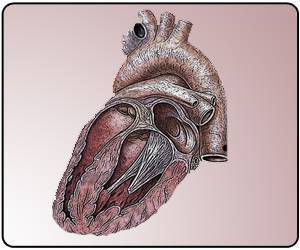
‘The exercise test, an approved international test to check whether people need open heart surgery could be sending twice as many people under the knife unnecessarily, at a cost of nearly £75m.
’
Tweet it Now
If exercise test participants become breathless, they are
recommended to have valve replacement therapy. About 10,000 aortic valve
replacements are performed every year at a cost of up to £15,000.
Hospital recuperation then takes between seven and 10 days. However, a study, led by Gerry McCann, Professor of Cardiac Imaging and Honorary Consultant Cardiologist from the University of Leicester Department of Cardiovascular Sciences, who conducted the research as part of a NIHR Fellowship, has shown the current approach is "highly inaccurate" and if followed may send thousands of patients to surgery before it is needed.
The exercise test is only has a 60% accuracy rate, the study found.
Professor McCann, who is also a consultant cardiologist from the NIHR Leicester Cardiovascular Biomedical Research Unit (BRU), said: "There is no doubt that valve replacement therapy is highly effective for patients with symptoms, however there are risks involved. It’s a major operation and there’s a one per cent chance of people dying or having a stroke during or after. There’s also the chance they could develop an infection."
"It can often take six months to recover, but if they survive they tend to do very well afterwards. However, if we know a patient has AS and no symptoms and we do nothing there’s also a one per cent chance they will die so there’s a fine line between whether we should intervene or not."
Advertisement
The findings have been published in the world-leading European Heart Journal, which showcases work often considered in future guidelines.
Advertisement
Source-Eurekalert















